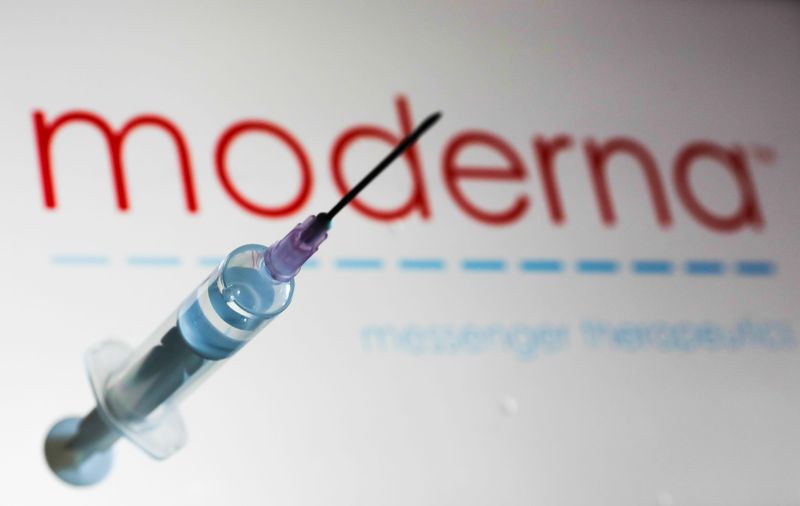Moderna Announces First Participant Dosed in Phase 1/2 Study of Its Quadrivalent Seasonal Flu mRNA Vaccine

CAMBRIDGE, Mass.--(BUSINESS WIRE)--Jul. 7, 2021 -- Moderna, Inc. (Nasdaq: MRNA), a biotechnology company pioneering messenger RNA (mRNA) therapeutics and vaccines, today announced the first participants have been dosed in the Phase 1/2 study of mRNA-1010, the Company’s quadrivalent seasonal influenza mRNA vaccine candidate.
This Phase 1/2 randomized, stratified, observer-blind, dose-ranging study will evaluate the safety, reactogenicity and immunogenicity of mRNA-1010, Moderna’s seasonal influenza vaccine candidate in healthy adults 18 years and older in the U.S. The Company intends to enroll approximately 180 participants in the study. mRNA-1010 is Moderna’s first seasonal influenza vaccine candidate to enter the clinic and targets lineages recommended by the World Health Organization (WHO) for the prevention of influenza, including seasonal influenza A H1N1, H3N2 and influenza B Yamagata and Victoria.
“We are pleased to have begun this Phase 1/2 study of mRNA-1010, our first mRNA seasonal flu vaccine candidate to enter the clinic. We expect that our seasonal influenza vaccine candidates will be an important component of our future combination respiratory vaccines,” said Stéphane Bancel, Chief Executive Officer of Moderna. “Respiratory combination vaccines are an important pillar of our overall mRNA vaccine strategy. We believe that the advantages of mRNA vaccines include the ability to combine different antigens to protect against multiple viruses and the ability to rapidly respond to the evolution of respiratory viruses, such as influenza, SARS-CoV-2 and RSV. Our vision is to develop an mRNA combination vaccine so that people can get one shot each fall for high efficacy protection against the most problematic respiratory viruses. We look forward to advancing our core modality of prophylactic mRNA vaccines so that we can continue to make an impact on global public health.”
Seasonal flu (type A and type B) epidemics occur seasonally and vary in severity each year, causing respiratory illnesses and placing substantial burden on healthcare systems. The WHO estimates approximately 3-5 million severe cases of flu each year globally1, and 290,000-650,000 flu-related respiratory deaths. Approximately 8% of the U.S. population experiences symptoms from flu each year2. In the U.S., the estimated average economic burden of flu is approximately $11 billion per year3.
Current flu vaccines are only approximately 40-60% effective and their formulation is decided 6-9 months before the vaccines are intended to be used. Egg-based vaccine production, the process used for the majority of currently licensed influenza vaccines, also has the potential to cause unintended antigenic change to the vaccine virus. Moderna plans to explore potential combination vaccines against flu, SARS-CoV-2, respiratory syncytial virus (RSV) and human metapneumovirus (hMPV). The Company’s overarching seasonal influenza program will aim to evaluate multiple candidates exploring different antigen combinations against seasonal influenza viruses in the clinic.
About Moderna
In 10 years since its inception, Moderna has transformed from a science research-stage company advancing programs in the field of messenger RNA (mRNA), to an enterprise with a diverse clinical portfolio of vaccines and therapeutics across six modalities, a broad intellectual property portfolio in areas including mRNA and lipid nanoparticle formulation, and an integrated manufacturing plant that allows for both clinical and commercial production at scale and at unprecedented speed. Moderna maintains alliances with a broad range of domestic and overseas government and commercial collaborators, which has allowed for the pursuit of both ground-breaking science and rapid scaling of manufacturing. Most recently, Moderna’s capabilities have come together to allow the authorized use of one of the earliest and most-effective vaccines against the COVID-19 pandemic.
Moderna’s mRNA platform builds on continuous advances in basic and applied mRNA science, delivery technology and manufacturing, and has allowed the development of therapeutics and vaccines for infectious diseases, immuno-oncology, rare diseases, cardiovascular diseases and auto-immune diseases. Today, 24 development programs are underway across these therapeutic areas, with 15 programs having entered the clinic. Moderna has been named a top biopharmaceutical employer by Science for the past six years. To learn more, visit www.modernatx.com.
1 https://www.who.int/news-room/fact-sheets/detail/influenza-(seasonal)
2 https://www.cdc.gov/flu/about/keyfacts.htm
3 https://pubmed.ncbi.nlm.nih.gov/29801998/
Source: Moderna, Inc.
Posted: July 2021

